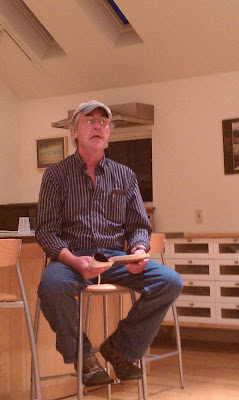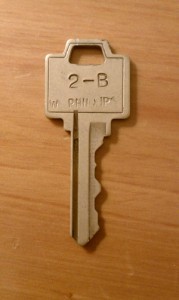I’ve been a vegan for 24 hours and have already started fielding questions from friends and acquaintances about why I made this decision. Many of my friends (in particular, Jenn Cornish) have offered words of support and resources for navigating this new world. Thanks, all.
The Chain Of Events
If you’re reading this blog, you probably know something about me and the various things I’ve done with my life thus far. I’ve been a fairly active progressive as a union organizer, Green candidate for local office, anti-war organizer and bicycling advocate. During all that time, I’ve also been eating beef and chicken and fish and dairy products, and lots of them. Given that 99% of that meat comes from creatures who are abused, caged and tortured to varying degrees, that practice is ethically inconsistent with how I try to live the rest of my life. Up until this weekend, I just compartmentalized that issue and chalked it up to “it’s a complex world and you have to pick your battles.” Plus, I really like sushi and tonkatsu and eel and karaage and chicken flautas and and and.

Over the past week, I’ve been overdosing on past episodes of the show Citizen Radio, hosted by comedian Jamie Kilstein and political writer Alison Kilkenny. They are both vegans and couch their veganism in terms of social justice. That’s a very compelling argument and one that, as I mentioned, I’ve been willfully ignoring. On a recent show, they interviewed the progressive punk band Rise Against. At the end of the interview, Alison and Jamie asked the band to recommend things they found inspiring, and one of the band members recommended the book Eating Animals by Jonathan Safran Foer. I got it from the library on Thursday and became a vegan yesterday.
by Jonathan Safran Foer. I got it from the library on Thursday and became a vegan yesterday.
Why Not A Vegetarian?
I initially thought I’d become a vegetarian and then maybe move on to being a vegan. The more I read about the issues, though, the more vegetarianism seems to fall short of the mark from an ethical and social justice perspective. It’s nearly impossible in this country to get dairy products or eggs from a source other than factory farming. I’m slightly more ambivalent about folks who raise their own chickens in small numbers to collect their eggs. Some of my very closest friends do this and care deeply for their chickens. They treat them humanely and let them live natural lives. These people are certainly the exception, not the rule, however, so it’s easier for me to cut those things out completely. (There’s also the fact that even the most humane treatment involves caging animals, but I haven’t really reached an opinion on this yet.)
I also like the idea of limiting animal consumption in other ways than just food. Being a vegan can impact the clothes and chemicals I use and some of the social interactions I have, and it also fits well with my anti-corporate philosophy.
Now What?
Well, now I have a lot of learning to do. I bought a vegan cookbook and got quite a few other resource suggestions from Jenn Cornish. I also need to examine the other areas of my life and the other purchases I make to see what needs to be modified and what alternatives exist. Citizen Radio is sponsored by Vegan Essentials, which is one source of products (not just food) made to vegan standards.
I also need to find more vegetables that I like and more ways to prepare them. I’ve never been a huge veggie fan, so I’m looking forward to expanding my horizons. I already eat (and in some cases cook) a lot of Japanese food without meat or fish or chicken, and I’m also a big fan of Indian food. I hope to add some other cuisines to my diet as well.
Another book I’m reading, Vegan Freak: Being Vegan in a Non-Vegan World (Tofu Hound Press) , suggested going “cold tofu” — become a vegan and commit to it for three weeks, with the idea that at the end of that time it will be easy to keep going. So that’s what I’m doing. Wish me luck!
, suggested going “cold tofu” — become a vegan and commit to it for three weeks, with the idea that at the end of that time it will be easy to keep going. So that’s what I’m doing. Wish me luck!






 OR
OR 

